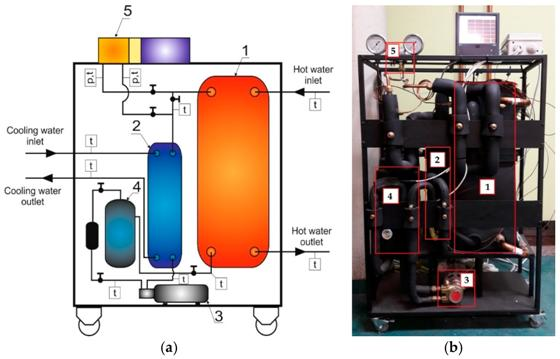Experimental and Numerical Analyses on the Rotary Vane Expander Operating Conditions in a Micro Organic Rankine Cycle System
Abstract
Share and Cite
Kolasiński, P.; Błasiak, P.; Rak, J. Experimental and Numerical Analyses on the Rotary Vane Expander Operating Conditions in a Micro Organic Rankine Cycle System. Energies 2016, 9, 606. https://doi.org/10.3390/en9080606
Kolasiński P, Błasiak P, Rak J. Experimental and Numerical Analyses on the Rotary Vane Expander Operating Conditions in a Micro Organic Rankine Cycle System. Energies. 2016; 9(8):606. https://doi.org/10.3390/en9080606
Chicago/Turabian StyleKolasiński, Piotr, Przemysław Błasiak, and Józef Rak. 2016. "Experimental and Numerical Analyses on the Rotary Vane Expander Operating Conditions in a Micro Organic Rankine Cycle System" Energies 9, no. 8: 606. https://doi.org/10.3390/en9080606
APA StyleKolasiński, P., Błasiak, P., & Rak, J. (2016). Experimental and Numerical Analyses on the Rotary Vane Expander Operating Conditions in a Micro Organic Rankine Cycle System. Energies, 9(8), 606. https://doi.org/10.3390/en9080606






